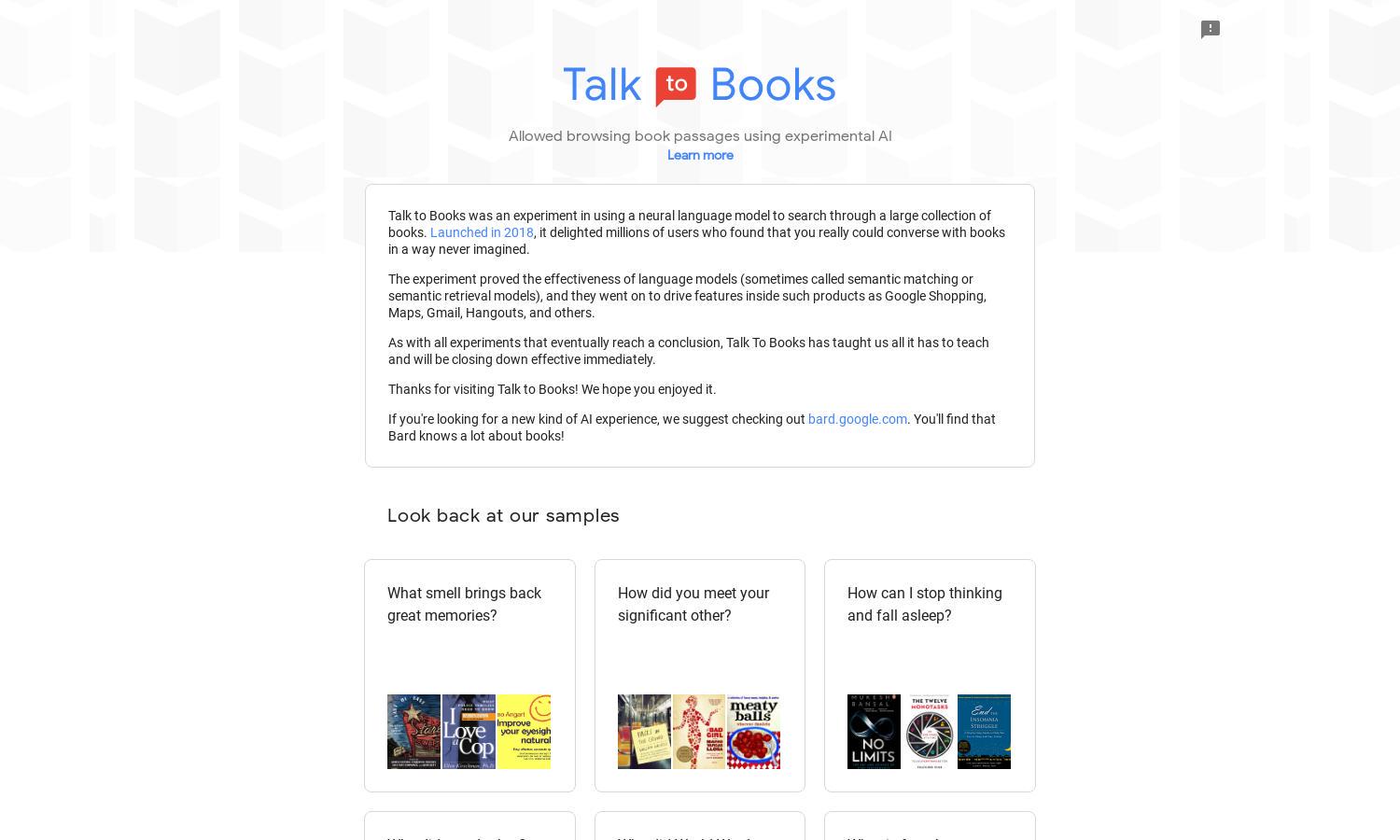Talk to Books

About Talk to Books
Talk to Books offered a revolutionary way to engage with literature through AI-driven conversations. Users could explore ideas by asking questions to the platform, receiving responses derived from a vast collection of books. This innovative feature catered to book lovers, researchers, and curious minds seeking deeper insights.
Talk to Books operated as a free service, allowing users to explore book insights at no cost. While the platform has been discontinued, its innovative AI capabilities set a benchmark for future services. Users previously enjoyed unrestricted access to a rich database of literary knowledge.
Talk to Books featured an intuitive user interface designed for seamless exploration of book content. The layout encouraged easy navigation, allowing users to ask questions and receive relevant book passages quickly. This user-friendly approach made interacting with literature accessible and engaging for everyone.
How Talk to Books works
Users interacted with Talk to Books by entering questions or topics of interest in the search bar. The AI would then analyze the query and retrieve relevant book excerpts or passages. This system allowed for dynamic conversations where users could discover insights from a variety of literary works effortlessly.
Key Features for Talk to Books
Conversational AI Search
The Conversational AI Search feature of Talk to Books allowed users to engage meaningfully with literature by asking questions. This innovative functionality provided personalized book recommendations, showcasing how users could explore diverse topics through excerpts, enhancing their understanding and discovery of literature.
Vast Book Database
Talk to Books' Vast Book Database was a unique highlight, offering access to an extensive collection of literary works. This feature enabled users to discover valuable insights across genres, fostering a deeper appreciation for reading and literature while utilizing advanced AI to streamline their search.
Archived Search Results
The Archived Search Results feature in Talk to Books allowed users to revisit past inquiries and explore previously uncovered insights. This functionality ensured a comprehensive experience, enabling users to reflect on their discoveries, enhancing the overall value and usability of the platform.








